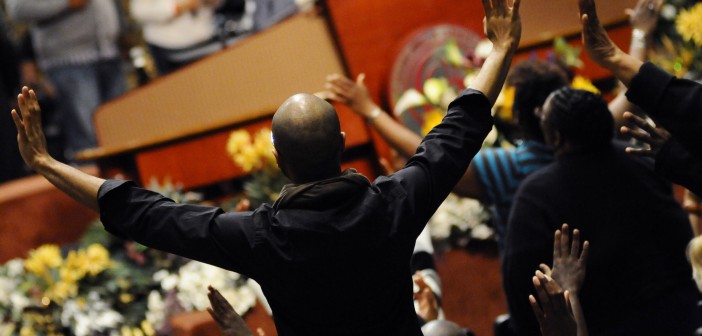A disconnect developed in the historic African Methodist Episcopal Church I serve between older and younger people around worship styles. While the median age in the church is 60, we have a small but consistent group of committed youth and young adults. Many of the young complained that aspects of worship, including the historic hymns and order of service, were boring and out of touch with their peers’ more contemporary congregations. To address their concerns, the church hired a contemporary gospel musician.
I asked them to join me in dreaming what our worship might look like in order to connect all members to God with passion and energy. Eventually, people with different perspectives agreed that unity was essential to the church’s future.
While this pleased many members, a group of older members complained that the music was too loud and not worshipful. Why change worship that had served the church for ages? Some felt the early pioneers of the church would turn over in their graves to hear some of the songs the youth want to sing. They require loud beats on the drums and microphone systems set high, not to mention the swaying and gyrations young people want to do! Others thought the money needed for equipment was too expensive. Complicating matters, these elders are major financial contributors.
A cross-functional team approach. Seeking to address the problem, I called together the Christian education and music leaders along with key stakeholders of the church, including youth and young adults. Knowing my limitations on some of the technical issues raised, I expanded the group to include expertise not previously represented. A former church musician, well respected and knowledgeable about all types of music, was invited to join the group. So was the church treasurer, who also knew musical instruments and equipment.
This approach capitalized on the importance of participation and relationships in leading change. Leadership is a shared responsibility. Our interconnectedness, not our individuality, became the key to our progress. A new web of relationships gave us hope amid our struggles.
Toward a shared vision. I acknowledged from the outset that worship is experienced by people differently based on many factors. I lifted an ideal of our church embracing enough flexibility in worship so that those for whom outward expression is important and those who are more quiet worshipers can connect with God and not make each other feel unwelcome. With that background, I asked them to join me in dreaming what our worship might look like in order to connect all members to God with passion and energy. Eventually, people with different perspectives agreed that unity was essential to the church’s future. Older members recognized the need for youthful energy, and the younger members saw the benefits of experience and tradition.
Listening to one another. We proceeded with the understanding that everyone’s point of view would be heard. Strong convictions could be expressed, but all agreed not to attack persons with whom they disagreed. Discussion groups and fish bowl exercises allowed each group to hear perspectives without adding their own input. Older members were invited to share memories with newer members so that the church could move forward together. All sides felt they were heard by the group. This helped foster hope in the possibility of a worship service that could incorporate both traditional and contemporary worship.
Learning and celebrating together. These meetings led to a series of workshops with the former musician. The workshops focused on the history of church music to achieve a broader common understanding. The present minister of music talked about the development of contemporary church music. At the same time a financial analysis was authorized. Fundraising began by a group comprised of some of our group plus other members.
Something that brought everyone together was a liturgical dance ministry made up of all ages, including a group of women 60 and older. A “Night of Music” featuring anthems, gospel, spirituals, contemporary music, and music associated with the AME heritage was a huge success with the church filled to capacity.
Melding tradition and innovation. The experience of Greater Mount Zion exemplifies how tradition and innovation are both necessary components to the survival of the Christian faith. With the common goal of developing a more Christ-like church, the groups took a shared goal and discovered methods to strengthen their church and make room for new expressions of worship. Only by trying to understand various perspectives can a leader invite the objectivity of others in seeking the greater good for the church.






